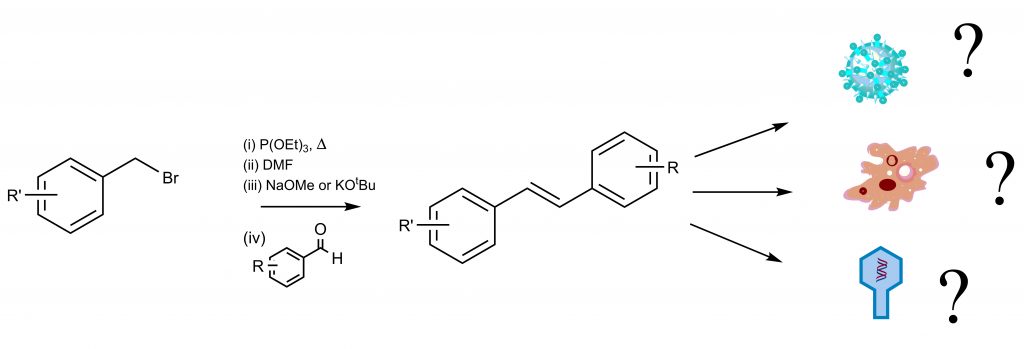Novel compounds designed and made by Chemistry@brighton researchers in the news

 Many students on the Chemistry and Pharmaceutical and Chemical Sciences courses at Brighton will already be familiar with the exciting world of small molecule therapies designed to slow ageing –through Dr Ostler’s (in)famous CH210 group consultancy report. The joys and difficulties of sorting anecdotal life extensionist optimisim from genuine scientific discoveries brought to life in this second year assessment gained a new twist this week.
Many students on the Chemistry and Pharmaceutical and Chemical Sciences courses at Brighton will already be familiar with the exciting world of small molecule therapies designed to slow ageing –through Dr Ostler’s (in)famous CH210 group consultancy report. The joys and difficulties of sorting anecdotal life extensionist optimisim from genuine scientific discoveries brought to life in this second year assessment gained a new twist this week.
 Exciting new research conducted in a collaboration between Dr Ostler, Professor Faragher (also at the University of Brighton) and Prof Lorna Harries at Exeter University was recently published in BMC Cell Biology.
Exciting new research conducted in a collaboration between Dr Ostler, Professor Faragher (also at the University of Brighton) and Prof Lorna Harries at Exeter University was recently published in BMC Cell Biology.
The discovery showed that novel small molecule analogues of the stilbene resveratrol (found naturally in red wine and chocolate) could “rejuvenate” senescent cells. The treated cells began to grow again and took on many features of “young” cells. The team also showed that this was because of changes in RNA splicing factors, the cellular machinery that allows cells to make many different kinds of protein from a single DNA sequence. The ability to use small molecules to intervene in this previously unexplored mechanism provides new possibilities for the development of anti-degenerative compounds that could allow people to remain heathier well into old age.
Earlier this week the mainstream press became interested in these discoveries, leading to some great headlines including the Sun’s “Wine’s end of the lines, Red wine and chocolate are secret to beating wrinkles, study says” and the Daily Mail’s “Chocolate and red wine ‘are the secret to beating wrinkles’: Scientists find both help rejuvenate old cells as well as the less dramatic “Reversing Aging: Scientists Make Old Human Cells Look And Act Younger in Breakthrough Discovery” from Newsweek and “Breakthrough: Scientists reverse aging in human cells” from Medical News Today. Our thoughts on the subject will be appearing soon in The Conversation.
All of this was made possible by chemistry and biology researchers working together – something we prize in our undergraduate degrees and that is reflected in our multidisciplinary School of Pharmacy and Biomolecular Sciences. Whatever your conclusions about red wine and chocolate, it is clear that our researchers and students will keep generating much food for thought!

